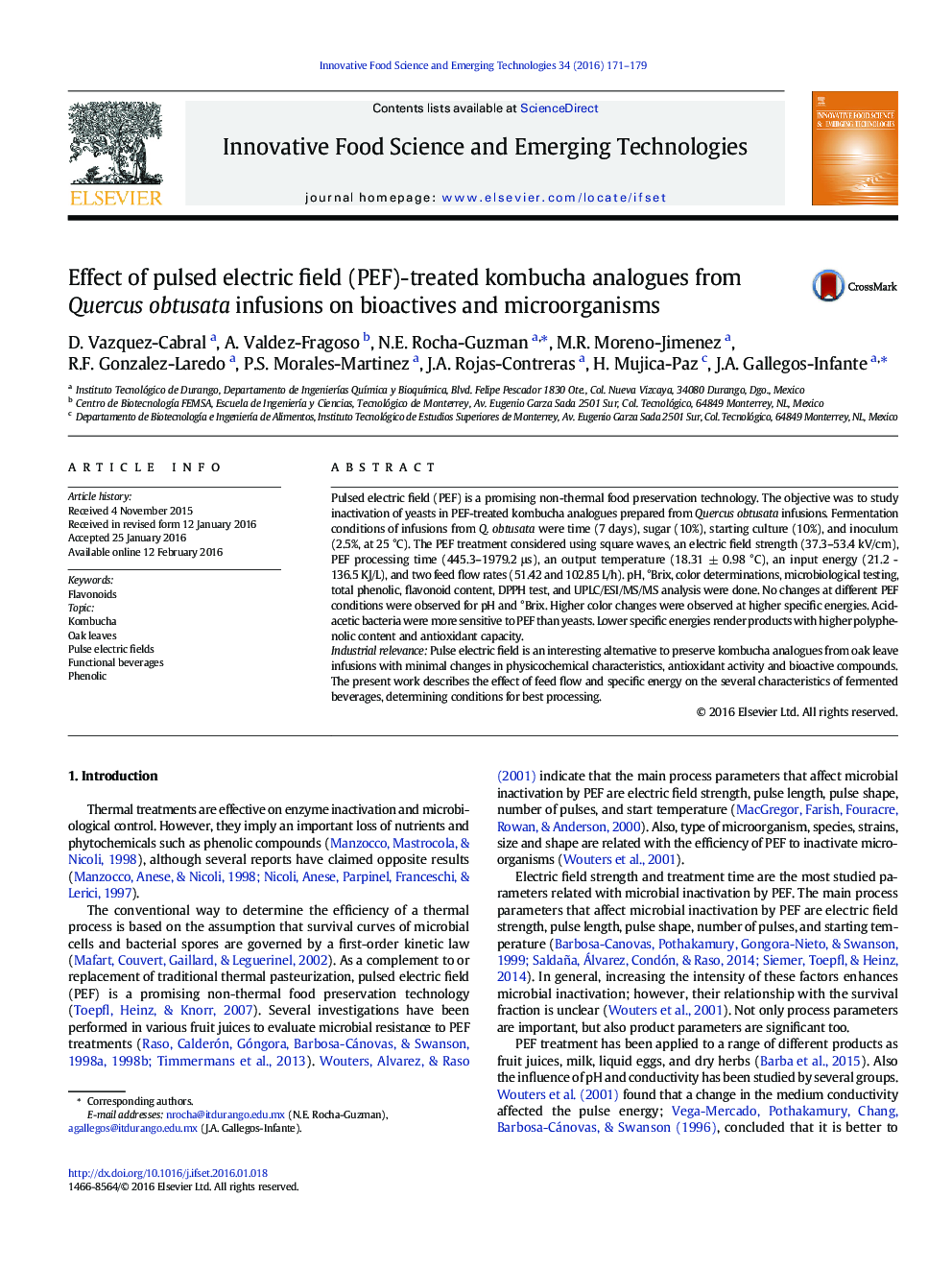| Article ID | Journal | Published Year | Pages | File Type |
|---|---|---|---|---|
| 2086368 | Innovative Food Science & Emerging Technologies | 2016 | 9 Pages |
•Pulse electric fields (PEFs) have little influence on antioxidant activity of kombucha analogues.•PEFs have minimum effect on kombucha bioactives at high feed flows.•Acid-acetic bacteria from kombucha analogues were more sensitive to PEF than yeasts.•Higher yeast inhibition was obtained at higher feed flows.•Lower specific energies produce kombucha analogues with higher phenolic and flavonoid contents.
Pulsed electric field (PEF) is a promising non-thermal food preservation technology. The objective was to study inactivation of yeasts in PEF-treated kombucha analogues prepared from Quercus obtusata infusions. Fermentation conditions of infusions from Q. obtusata were time (7 days), sugar (10%), starting culture (10%), and inoculum (2.5%, at 25 °C). The PEF treatment considered using square waves, an electric field strength (37.3–53.4 kV/cm), PEF processing time (445.3–1979.2 μs), an output temperature (18.31 ± 0.98 °C), an input energy (21.2 - 136.5 KJ/L), and two feed flow rates (51.42 and 102.85 L/h). pH, °Brix, color determinations, microbiological testing, total phenolic, flavonoid content, DPPH test, and UPLC/ESI/MS/MS analysis were done. No changes at different PEF conditions were observed for pH and °Brix. Higher color changes were observed at higher specific energies. Acid-acetic bacteria were more sensitive to PEF than yeasts. Lower specific energies render products with higher polyphenolic content and antioxidant capacity.Industrial relevancePulse electric field is an interesting alternative to preserve kombucha analogues from oak leave infusions with minimal changes in physicochemical characteristics, antioxidant activity and bioactive compounds. The present work describes the effect of feed flow and specific energy on the several characteristics of fermented beverages, determining conditions for best processing.
